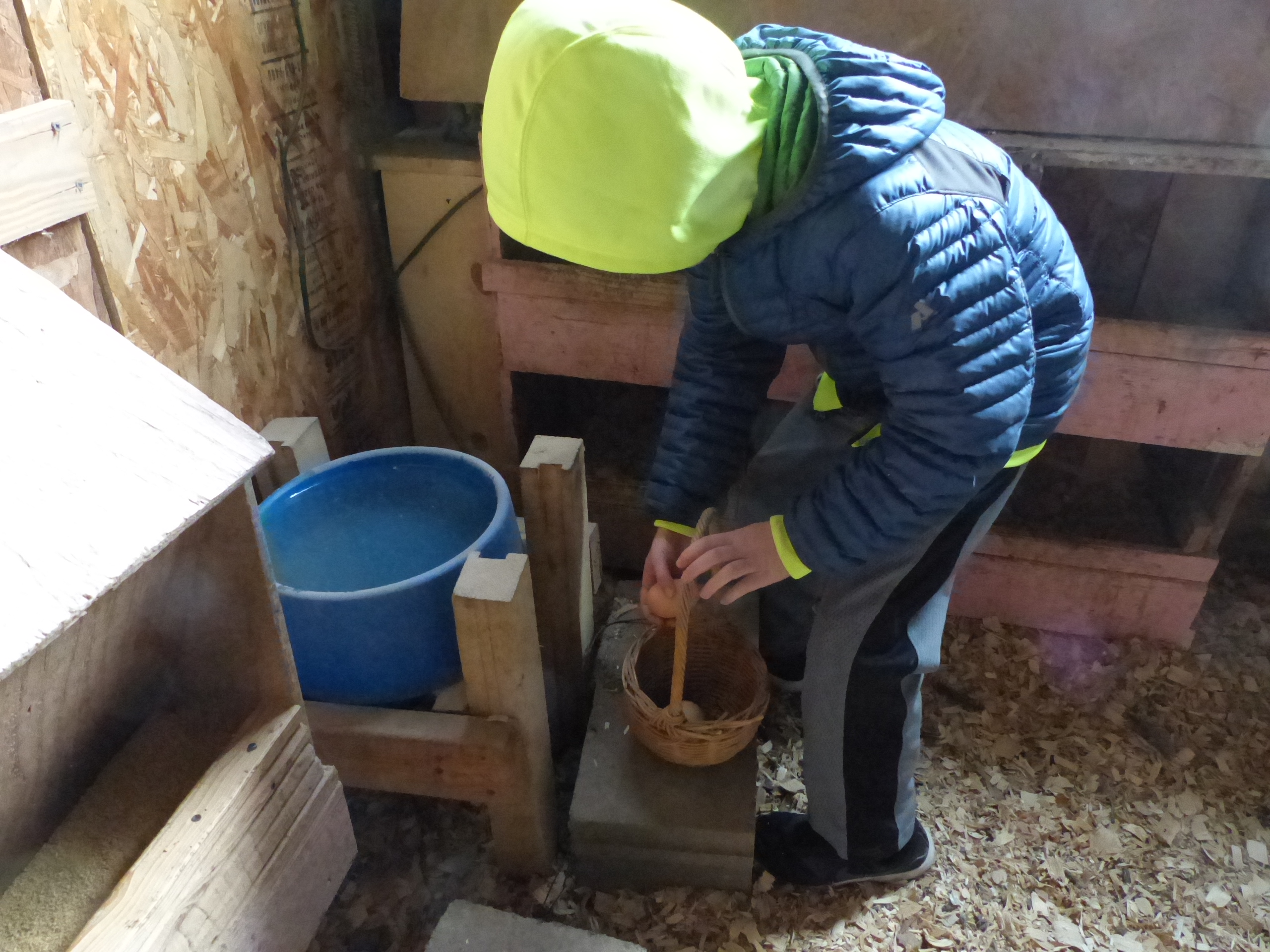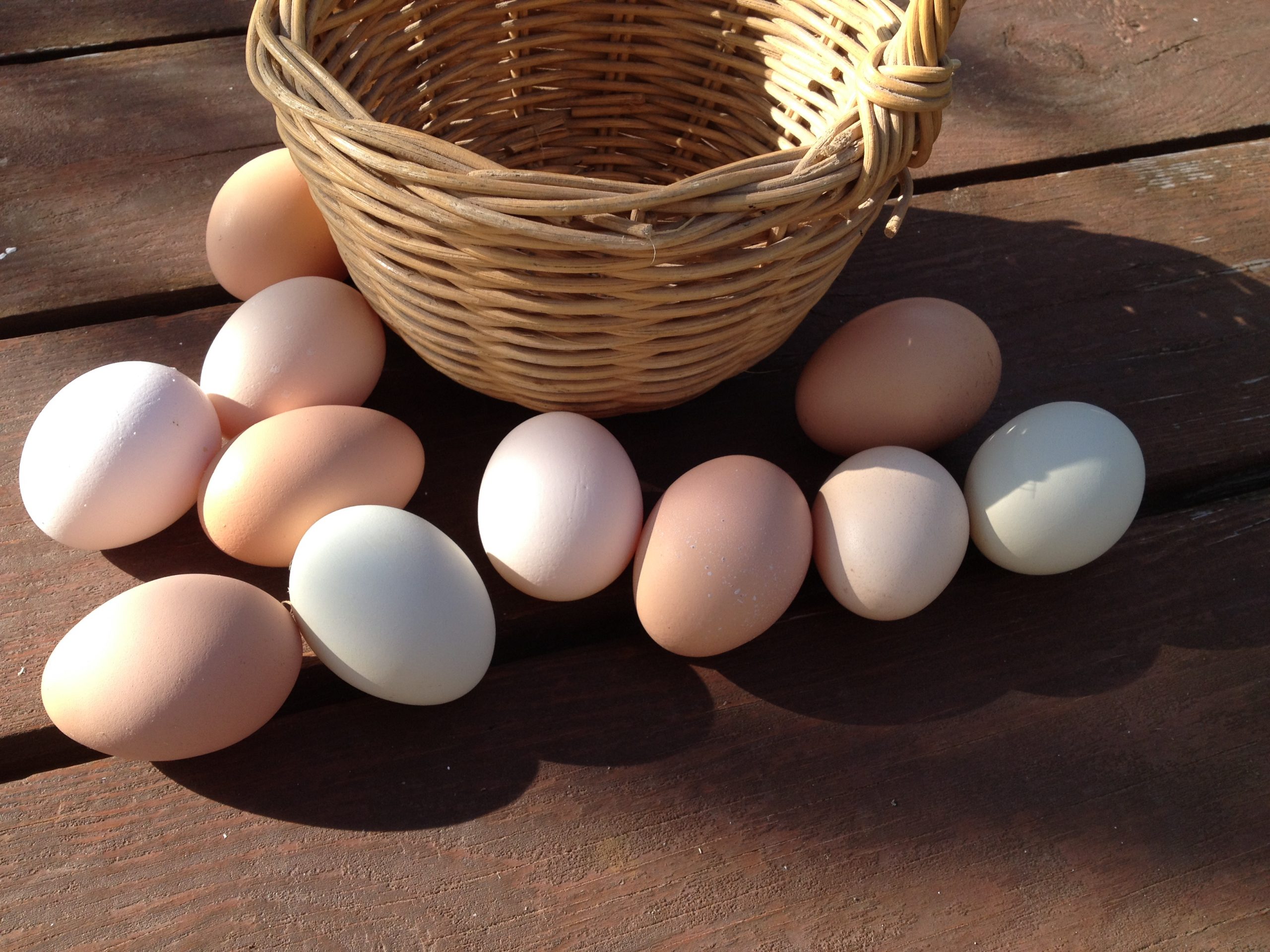Hoover’s Hatchery™ recently produced a Facebook Live event at Etzel’s Sugar Grove Farm showing how Carl and Gavin Rosier have adapted modern technology to make managing their chicken flock easier. One viewer responded saying, “If I don’t visit my coop every day too many eggs build up in the nest. Some get broken. Most get dirty.”
Carl and Gavin never intended for their devices to eliminate the need to visit daily. Technology just makes it easier to monitor the flock from a distance.
Here are the devices they adapted to make managing the hens easier and visits somewhat less often:
● Electric fence ringing the perimeter of a large run. It keeps the chickens in and predators out.
● An automatic pop hole door that closes at sundown and opens at sunrise.
● A microheater and aerator that keeps drinking water ice free.
All these are powered by solar collectors with batteries storing energy for use when the sun’s behind clouds or at night. The Rosiers pointed a remote-access camera at the coop with the electric fence and pop hole door visible. The camera makes it possible to check the coop’s exterior in real time 24/7 from a distance.
Carl and Gavin live over ten miles from their coop. Typically, each morning they take a look at it on their computer from home. They can instantly tell if the pop hole door is open and the hens are normally walking about. As long as everything appears to be all right, they know they don’t need to immediately rush to the coop, so they can linger home for a second cup of coffee.

Then they drive to the farm every day. They check the coop to collect eggs, fill feeders and waterers, and visibly check it over. Then, they proceed with their regular work at the Farm.
If they spot something amiss, they skip the coffee and drive right out. So, these modern devices don’t eliminate the need to visit the coop daily, but they enable a distant view to make sure everything’s ok.
Visiting the coop a few times a day is important. Eggs freeze during subzero weather and spoil on blistering hot summer days. Waterers tip over, and sometimes a predator breaches even the best defensive door or fence. There are always things that need to be done in person.

Redundancy Is Important
Whether or not a coop has electronic waterers, fences, door controllers or cameras, redundancy in providing critical hen needs is important. Especially waterers.
Chickens drink often, even in the depth of winter. On hot summer days they cool their bodies by panting. Their evaporating exhaled breath helps reduce body temperature but increases their need to drink.
It’s easy for hens to drain a waterer or tip it over. Winter’s chill quickly freezes unheated waterers, and chickens can’t hydrate by eating snow or ice. They must have liquid water. Without it they’ll quickly die on hot days and be greatly stressed when it’s cold. At best dehydration stops egg laying. At worst, it kills.
The solution is redundant waterers. Keep two filled waterers in the coop. If the hens knock one over or drink all its water, they can enjoy a cool drink from the other.
Electrically heated waterers keep water liquid on even the bitterest days but here are some ways to keep it available if a coop lacks electricity:
● Use black flexible rubber buckets, rather than metal pails, for their water. If possible, place it in the sun. The black rubber absorbs some heat, and if the bucket freezes it’s easy to crack out the ice. That’s not possible with metal pails.
● Replace bucket water every few hours on cold days. Warm water resists freezing a little longer than cold water.
● Use an insulated bucket as a waterer. Ice anglers often use insulated buckets to keep the water holding live minnows from freezing. They can be purchased where fishing equipment is sold. The inch of Styrofoam insulation ringing the bucket helps keep water liquid an hour or two longer than a non-insulated one.
Even with the best electronic labor-saving coop devices, it is important to visit the coop every day and, preferably, several times a day to collect eggs, fill feeders and waterers, generally check things over, and say, “thanks” to the hens for their gifts of fresh eggs.